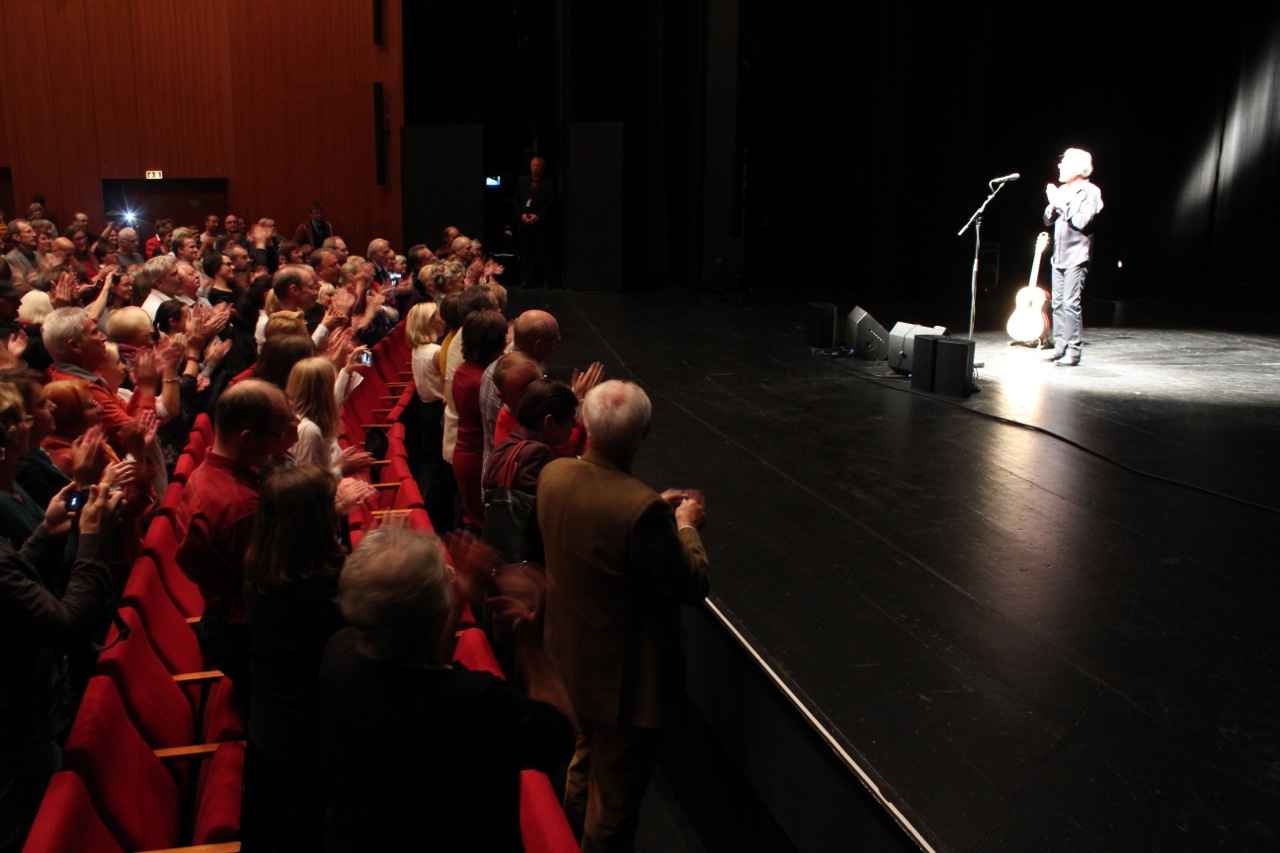



After the performances, children stormed us with suggestions as to what the next play should be about. As an aid to judgment, we only invited school classes to our second premiere, “Maximilian Pfeiferling”, in November 1969, and put critics and experts at the very back. The truth was, however, the children were more enthusiastic to see themselves with their everyday worries at the centre of things than anything else, to be taken seriously, to discover what others like them are doing, that the world can be changed, and above all that there is a lot to laugh about. Right from the start, “education experts” complained that we were just giving the poor children their own bleak everyday life, inciting them and making them unhappy instead of taking them away to an ideal world. The rapid rise of GRIPS Theater was accompanied by resentment and ideological resistance. And the question of the meaning of our actions never arose again. Our love for this audience made it easy for us to say goodbye to political cabaret. What we missed so painfully in cabaret, we finally found: An audience of all classes including the precarious. In addition to the children’s places, their school classes shaped our audience, which was largely proletarian as a result. Quite a few left-wing students became primary school teachers in Neukölln and Wedding. Whether one sought salvation in Moscow, Beijing or in the SPD was a minor matter when everyday life demanded new anti-authoritarian educational concepts: Our children were annoying across factions. Only the children’s movement remained little affected by the ideological trench warfare. It is cabaret, only for a new audience: punchy, cheeky, with catchy songs.įor us, like adult cabaret, the children’s theatre was now “a means of influencing social conditions”, true to the Brecht motto: “Whoever has recognised his situation, how can he be stopped?” The collapse of the student movement also affected the Reichskabarett. It represents the interests of its audience, wit and solidarity are the weapons of the oppressed. Why does the story of GRIPS begin with “Stokkerlok and Millipilli”?ĭespite its fairytale packaging, it contained everything that defines GRIPS and was part of the Enlightenment concept in 1968: It is anti-authoritarian, emancipatory, socially critical, optimistic. The play was re-enacted in over 100 theatres around the world. The critics panned the play just as furiously as they had “Bombenstimmung” three years earlier.Ī year later it received the Brothers Grimm Prize and Robert Wolfgang Schnell stated in his laudation: “Hachfeld and Ludwig show that they are not imaginative aesthetes, but rather have moral passion, without which nothing beneficial can be done in the field of theatre”.
Tournee reinhard mey 2016 driver#
Set designer and caricaturist Rainer Hachfeld wrote “Stokkerlok and Millipilli” with me in three and a half weeks, Kursawe and Wiehe played the dismissed engine driver Stokkerlok and the locomotive owner Kratzwurst, Hobby: painting “Prohibited” signs The premiere was on. In order to plug the budget hole, the star cabaret artists had to do something themselves. Instead of dealing with the content with us, it moved to the Theater Tribüne, where it soon came to an end. We did not have the idea to use this genre politically and turn it upside down until three years later – in the spring of 1969, when we broke with the children’s theatre troupe. Despite great success and the Brothers Grimm Prize in 1967 for “Kasper und der Löwe Poldi”, we were rather embarrassed about the company. The cabaret artists had nothing left for this children’s theatre around Sigrid Hackenberg and Horst Jüssen. Peter Rühmkorf read and Hüsch and the Floh de Cologne made guest appearances.Īnd just so that the place would not be empty in the afternoon, our manager invented a “Theatre for children in the Reichskabarett” in June 1966, which was very unusual, because back then there were only Christmas fairy tales for children. met here and became cult like Ortrud Beginnen. On Friday nights they sang, those who dared got ten marks, and that was a lot: Hannes Wader, Ulrich Roski, Reinhard Mey and Katja Ebstein (then still Witkiewicz), Insterburg and Co. Serious cultural criticism suddenly wished we were outraged behind the wall, we lost stunned friends and all jobs at RIAS, but we had the truth on our side and felt great. With our second programme “Bombenstimmung”, a factual Vietnam War review by the 22-year-old Frank-Patrick Steckel (with contributions from the equally young SDS member Detlef Michel and several old masters), the Reichskabarett established itself in 1966 as the satirical voice of the student movement, especially the SDS wing around Rudi Dutschke.


 0 kommentar(er)
0 kommentar(er)
